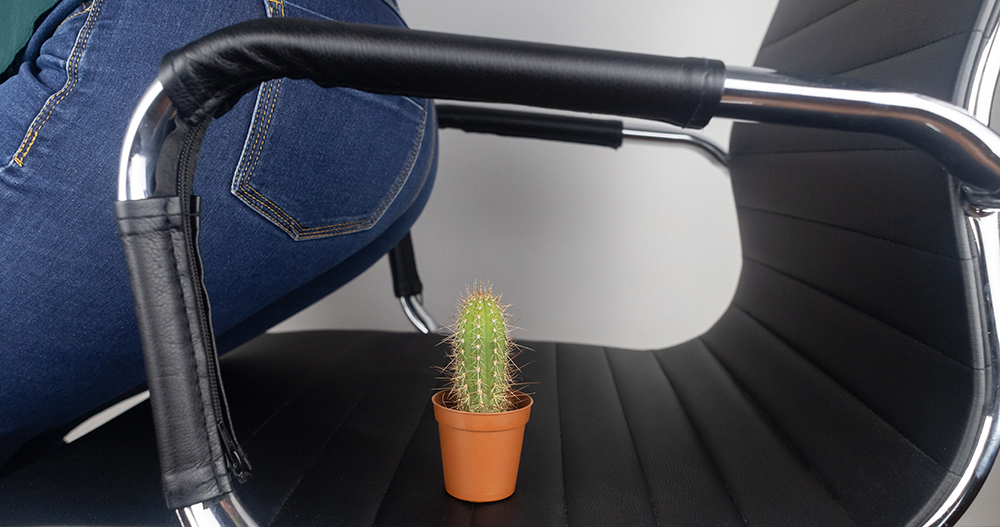Anal fissures are tears in the lining of the anal canal, typically just inside the anus. These tears cause very sensitive nerve fibers to be exposed to constant irritation. Two main types of anal fissures can occur:
- Acute anal fissure. These severe tears typically heal with appropriate medical treatment, often in less than six weeks.
- Chronic anal fissure. These tears can last for months or even years, severely impacting your quality of life.
Anal fissures most commonly occur in the back of the anal canal. Fissures in the front or on the sides of the anal canal are much less common.
Causes of anal fissures
The two most common causes of anal fissures are being constipated due to a large, hard stool or having severe diarrhea. Anal fissures can also occur after suffering trauma to the anal area. If you have hypertonicity (muscle tightness) of the anal canal and those muscles do not easily relax, you are at an increased risk for developing an anal fissure. On rare occasion, anal fissures can be caused by chronic medical conditions like Crohn’s disease, HIV, syphilis, tuberculosis or cancer.
Symptoms of anal fissures
Medical treatment for anal fissures
If you have an acute anal fissure, your surgeon will usually suggest a combination of medical treatments. An acute anal fissure has an 87 percent chance of healing with these treatments. Your specialist may recommend one or more of the following to heal your anal fissure:
- Dietary changes. Your surgeon will recommend eating more fruits, vegetables, and whole grains to improve your fiber intake. Guidance will also include drinking several large glasses of water each day and avoiding foods that cause constipation, such as excessive amounts of red meat.
- Stool-softening regimens. Over-the-counter stool softeners can help make your stool easier to pass and less painful.
- Calcium channel blockers (CCBs). This topical (applied directly to the skin) medication relaxes the anal sphincter muscle by increasing blood flow, thus allowing the fissure to heal. Diltiazem and nifedipine are the CCB ointments that surgeons most often prescribe. A compounding pharmacy will need to fill your prescription for CCBs since they include a mixture of numbing creams for comfort.
- Nitroglycerin ointment. Your surgeon may prescribe this topical (applied directly to the skin) medicine to help relax your sphincter muscle. Nitroglycerin ointment can be an effective treatment, but many people experience headaches as a side effect and cannot use it. You’ll need to use a compounding pharmacy to fill your prescription for this ointment since it includes a mixture of numbing creams for comfort.
If your anal fissure does not respond to treatment and continues without healing, you will likely need surgery for your anal fissure.
Surgical treatment for anal fissures
- Botox. Your surgeon can inject Botox into the anal canal while you are sedated. Botox relaxes the sphincter muscles. The effects of Botox last about three months, giving the fissure time to heal.
- Sphincterotomy. While you are under sedation, your surgeon makes a very small incision in the anal canal to relax the sphincter. This effective procedure is the gold standard for treating anal fissures, and it offers a success rate of more than 95 percent.
Learn more about the procedures and surgeries that our team offers.


